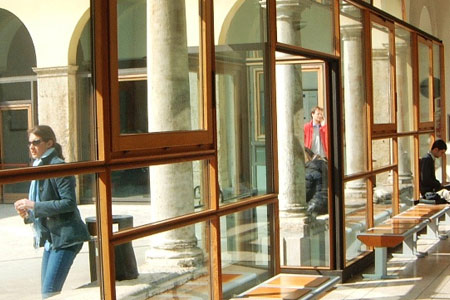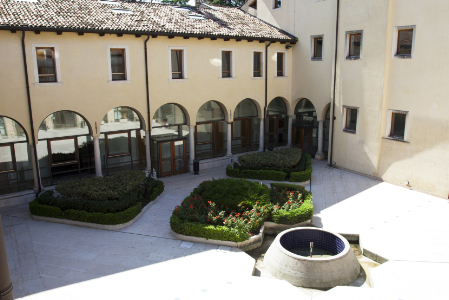Course not running

- Course code
- 4S000520
-
Name of lecturer
-
Giampietro Ferri
- Coordinator
-
Giampietro Ferri
- Number of ECTS credits allocated
-
9
- Academic sector
-
IUS/08 - CONSTITUTIONAL LAW
- Language of instruction
- Italian
- Location
- VERONA
- Period
-
1° periodo di lezioni dal Sep 28, 2020 al Dec 14, 2020.
Lesson timetable
Go to lesson schedule
Learning outcomes
The course has a two fold objective: - the basic ability to find the sources of commercial law, ie the right of the company and of the com-panies in their essential and systematically relevant elements, with analysis, comprehension and comparison of the rules. - the ability to set up in written and oral legal issues related to the main issues of the subject, with ac-quisition of an appropriate and specific disciplinary vocabulary, ability to formulate independent judg-ments on concrete cases, a method that allows the continuous learning and updating of knowledge
Syllabus
The course will cover the following subjects:
1. Law:
- the distinction between subjective and objective law
- the distinction between law and regulation
- legal system concepts
- the differing characteristics of legal norms
2. Sources of law
- Basic notions (sources of production and sources of cognition, statutory and custom sources, typical and atypical sources)
- Typology: constitutional sources, primary state sources (in particular, law decree and legislative decree) and secondary sources, regional sources, international and foreign sources, and European
- criteria for resolving contrasts between sources
3. The State:
- historical formation
- constitutive elements (nation, country, and sovereignty)
- State structures and classifications
- distinctions between state structures and government structures
4. The Italian Constitution:
- introduction: the concept of the Constitution
- origins
- features
- fundamental principles
- rights and duties of citizens
- constitutional bodies:
a) Parliament
b) the Government
c) the President of the Republic
d) the Constitutional Court
- judiciary power
- regions and local autonomy
Reference books
| Author |
Title |
Publisher |
Year |
ISBN |
Note |
| V. ONIDA, M. PEDRAZZA GORLERO (a cura di) |
Compendio di diritto costituzionale
|
Giuffrè |
2018
|
978-88-28-80401-7 |
|
Assessment methods and criteria
The final exam will have two parts. In the first, students must respond in writing to three open questions to verify an understanding of the text of the Constitution, and to resolve basic applied law source problems. In the second, students must respond to oral questioning to determine whether they are capable of independent, critical analysis of the subjects covered during the course.
For students attending the course, there will be an optional midterm examination of open questions on the subjects covered during the course. Students who pass this exam must then take an oral exam on a fixed date that covers the remaining part of the course.
ERASMUS students should discuss exam options with the professor.







